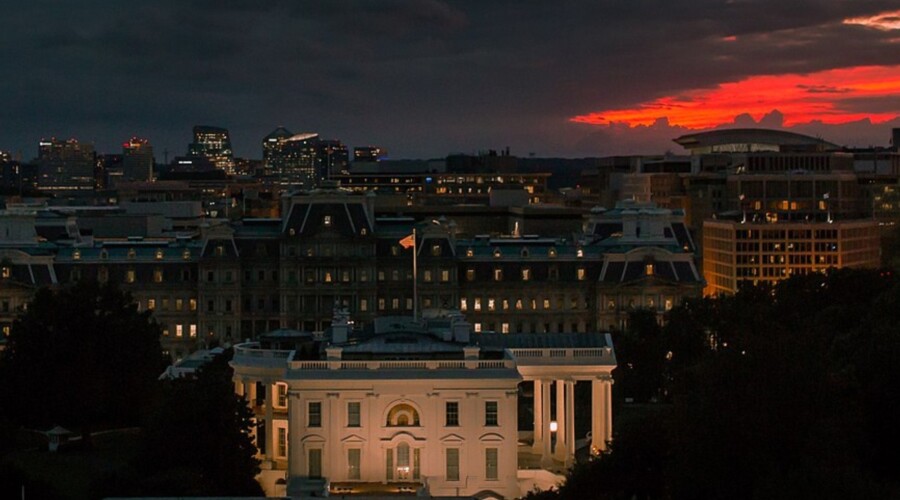Export
BOOK REVIEW—The Internationalists: How a Radical Plan to Outlaw War Remade the World
By Oona A. Hathaway and Scott J. Shapiro
Almost since the day of its signing on August 27, 1928, the Kellogg-Briand Pact—formally known as the General Treaty for Renunciation of War as an Instrument of National Policy—has been considered a failure. Among students and observers of international affairs it is seen as an oddity and sideshow if not an object of ridicule. As the authors of The Internationalists point out, “three years after the grand pronouncement, Japan invaded China. Four years after that, Italy invaded Ethiopia. Four years later, Germany invaded Poland and most of Europe.” In a little more than a decade, the dream of comprehensive peace turned into total war.
What could be more feckless than an effort to outlaw war? Kellogg-Briand, also known as the Paris Peace Pact, rested on sheer assertion. George Kennan, the preeminent historian and analyst of U.S. foreign policy in the 20th century, called it “childish, just childish.” Kellogg-Briand became Exhibit A in the realist case against excessive idealism. A mere declaration—no matter how high minded or well intended—could not possibly hold up under the pressure of power politics.
Yale law professors Oona Hathaway and Scott Shapiro turn this case upside down. They argue that not only is Kellogg-Briand misunderstood, it is actually the most profound turning point in international relations in the modern era, hence their subtitle How a Radical Plan to Outlaw War Remade the World. Remaking the world is a tall order, and the obscure moment between the end of World War I and the beginning of World War II seems an unlikely place to take this stand. But The Internationalists does so with gusto, and the results are an achievement to be reckoned with.
The Internationalists is a manifesto that scales from minute detail to global perspective. Over 400 pages of narrative and analysis are followed by more than 100 pages of footnotes. The story unfolds in novelistic detail, ranging from the origins of international law in the life and work of Hugo Grotius, seen here in his role as corporate lawyer for the Dutch East India Company, to the dramatic scene on the Quai d’Orsay of French foreign minister Aristide Briand (of “long drooping mustache and grizzled face”) and U.S. secretary of state Frank Kellogg (with tears running down his cheeks) signing the pact “depriving war of its legitimacy.”
Similar drama and detail follow in descriptions of the contributions to this effort by relatively obscure policy advocates such as Salmon Levinson, Nishi Amane, James T. Shotwell, and Sumner Welles. Also featured and fully animated are the great international legal scholars of the mid-20th century Carl Schmitt, Hans Kelsen, and Hersch Lauterpacht. Key moments in the history of international law unfold as a series of interactions between men of great accomplishment who jockey for position in a race toward an unknown and uncertain destination.
Hathaway and Shapiro argue that 1928 marks a complete shift from an old world order to a new one. Before Kellogg-Briand, all states retained the right of conquest. “War was not a departure from politics; it was civilized politics. Indeed, states could not imagine doing without it.” The old order supported the imperial age. The new order would be distinctly modern, based on moral progress and the elimination of 18th- and 19th-century barbarisms such as slavery, dueling, and now war.
After the pact, no longer would it be possible for a leader like President James K. Polk to issue a call to arms like the 1846 Mexican-American War proclamation, justifying war as a legal and entirely proper remedy for the collection of debts and redress of grievances. The new order would be based on the idea that conflicts should be mediated and arbitrated through international institutions. Law would replace force.
After 1928, alternative policies were developed to replace war as an instrument of policy. First among them was the use of sanctions. With the rise of free trade and the growth of self-determination, economic power became ever more important as a lever of policy. Other levers included creating barriers and incentives to hinder or foster the movement of people and capital. “Outcasting” became a new way to exert power, rendering severe penalties to parties that did not observe the law.
There is little doubt that the normative shift described by Hathaway and Shapiro occurred. But major questions loom over it. Did this shift matter in the actual conduct of foreign policy? It is hard to see that the trajectory changed to the degree promised in 1928. The law itself may have developed in a certain direction. But was it accepted fully by those in power?
The authors argue that “the choice between power and law is a false one. Real power—power useful for achieving important and lasting political objectives—does not exist in the absence of law.” As they put it, “brute force, like rushing water, must be controlled and channeled.”
Indeed, the shift toward delegitimizing the use of force as an instrument of statecraft achieved quite a lot. However, the practice of law has shown serious limits. The United Nations Security Council remains deeply politicized and ineffective; the General Assembly and UN agencies are viewed in similar light. Few would put their fate solely in the hands of these institutions.
The list of current conflicts is sobering: Korea, Iran, South China Sea, Syria, Iraq, Afghanistan, Ukraine, and more. The norms ushered in by the 1928 pact have standing, but they are only as good as the powerful forces that will back them up. Norms not backed by force may have eloquence and moral weight, but they do not yield results on the ground. The paradox here is an old one: there can be no peace without the prospect of force to back it up. It was no accident that the founding of the United Nations was followed by the creation of NATO and additional security arrangements.
The question for today is this: In the absence of a globally recognized legal authority, what is the best way to back the norms of peace, nonaggression, and self-determination? These norms will not survive by benign neglect. They require proactive support inside and outside the formal legal system.
The outlook at the moment is not promising. Centripetal forces appear to be gaining as strongmen are ascendant in Russia, Turkey, and even China, where President Xi Jinping has solidified his position as unrivaled leader. President Donald Trump’s posture continues to signal American withdrawal from global commitments. “America first” means reducing funding to the United Nations and other multilateral institutions, exiting the Paris climate agreement, hedging on NATO and the WTO, and passively accepting the Russian annexation of Crimea.
Trump’s brand of internationalism does not back any sort of values-based legal order. In fact, Trump suggests a completely different direction when he makes statements about seizing Iraqi oil or unleashing “fire and fury” in North Korea. So far, the challenge is more rhetorical than actual. But it is hard to imagine a more direct threat to the internationalist ethos of Kellogg-Briand and its successors.
Today’s internationalists would do well to pick up the mantle suggested in this book. Their challenge is to forge a responsible internationalism that is not based on law and organization alone but also musters the power that is needed to support it. This was the project of a century that is rapidly receding. Without correction, these lessons will need to be learned all over again. The cost could be unimaginable.




